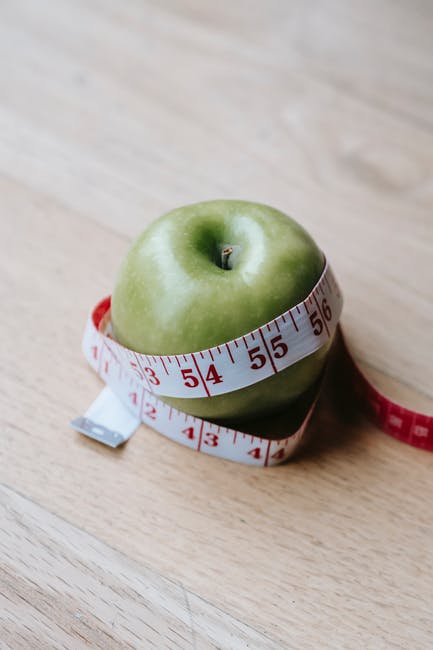How Long Does It Take to Lose Weight on Average?

The biggest hurdle between the impetus to make a change and realizing that change is the time in between. It’s easy to say you could learn a language in a year but difficult to practice each day. The same holds true for weight loss, the daily effort gets lost in the quest for an end result.
To combat this you should ask how long does it take to lose weight on average? The answer gives you a timetable but also, intrinsically, reminds you that a daily schedule is necessary to get there.
You’ve likely heard a two-pound average mentioned but where does that number come from and is it applicable to you?
This guide explains the many factors that influence weight loss so you can make an accurate estimate for your efforts.
How Long Does It Take to Lose Weight?
The problem with answering this question with a single number is that it is a universal question and you’re an individual.
Rather than provide a number, if you understand the factors that contribute to that number, you gain a satisfactory and practical answer.
Understanding Metabolism
Very simply, weight loss s a product of metabolic rates. When you burn more than you consume, you lose weight.
This isn’t the same as the calories-in calories-out equation you may have seen. metabolism is complex and influenced by a lot of factors.
The majority of the weight that leaves your body is through your CO2 exhalations. This is the by-products of energy metabolized in cells and then released.
Water Weight: The Great Flux
The single worse indicator of weight loss is taking a look at the scale from one day to another. boxers and other ‘by weight’ athletes rely on the ability o shift water weight because it can be manipulated so readily.
Water weight fluctuates even from night to morning, leading some people to believe that you can ‘diet’ overnight.
You’re not in total stasis overnight, and breathing expunges energy. However, the majority of your overnight loss is water that you replenish quickly in the day. When calculating weight loss you need to chart over the course of weeks and months to gain a real sense of your changes.
Calorie/Nutrient Intake
What you eat matters because what you eat contains different levels of nutrients. More importantly, those nutrients require different levels of effort for the body to process. Not all calories are the same even when measured to the same numbers.
The energy density of a complex carbohydrate includes how much energy is there and how hard your body has to work to get that energy out. Sugars don’t require much work to break down and convert to viable fuel for muscles and ATP synthesis. That’s why candy provides a quick burst of energy.
Fibrous greens take a lot of energy to extract nutrients from. This is how eating a variety of vegetables aids in weight loss and why a diet rich in fats doesn’t.
Your body also learns as it goes, accepting a dietary intake and adjusting chemically where it can. When you start a new diet plan your results seem better than later on the same plan. This is your body adjusting like it’s supposed to.
If you eat too little, your body doesn’t keep losing weight, it adjusts to the scarcity by storing and retaining. It doesn’t know the difference between you trying to lose weight and you facing a starvation situation.
Energy Output
The next factor in weight loss is activity. A weight lifter and a marathon runner both exercise and both control their diet but end up with different body shapes. Both can be considered healthy.
The difference in the outcome is a product of the type of energy stored and the muscles worked. Conversions of fat into muscle change your density but don’t affect the number on a scale.
Part of measuring output is understanding retention. Your body reacts to external factors as well as internal. Stress, lack of sleep, and even routine all contribute to retention.
Exercise needs to be consistent in volume but not in technique and focus. Not only does changing up the routine give time for recuperation, it keeps the body guessing and delays the onset of weight retention.
Starting Factors
How your body process food intake and reacts to exercise differs according to a litany of starting factors.
Your age, hormones, starting weight, and genetics all come into play. More controllable factors such as diet, sleep, and mood all impact weight changes.
Generally speaking, the older you are the harder it is for the body the change. Those prone to a higher fat-to-muscle ratio lose weight slower.
Genetic disorders that make it difficult to process some nutrients will hamper weight loss.
Understanding your specific set of starting factors helps you to modulate your weight-loss expectation.
Weight Loss Timeline
Now that you have an understanding of the starting condition, it’s also important to understand your timeline.
The first few weeks of effort don’t show much in the way of results. It took years to get where you are, it should take time to see changes as well.
Once the introductory period is over, your new routine starts to show results and you feel better.
Sadly, after about the fourth week of consistent effort, you’re likely to experience a slowdown. Continuing forward requires modulating your weekly expectations down while concentrating on forward progress.
Work Consistently
The best way to answer how long does it take to lose weight is to engage in efforts consistently. Whether it is an exercise routine, a diet change, a lifestyle alteration, or a combination of all of the above, consistency is key.
Embarking on a journey to greater health isn’t a small task or a weekend goal. it takes consistent effort and an ability to understand that like any journey, it ebbs and flows.
Working with others that can encourage and hold you accountable promotes a successful mindset and keeps you grounded. Contact us for more information about our weight loss programs and offerings.







